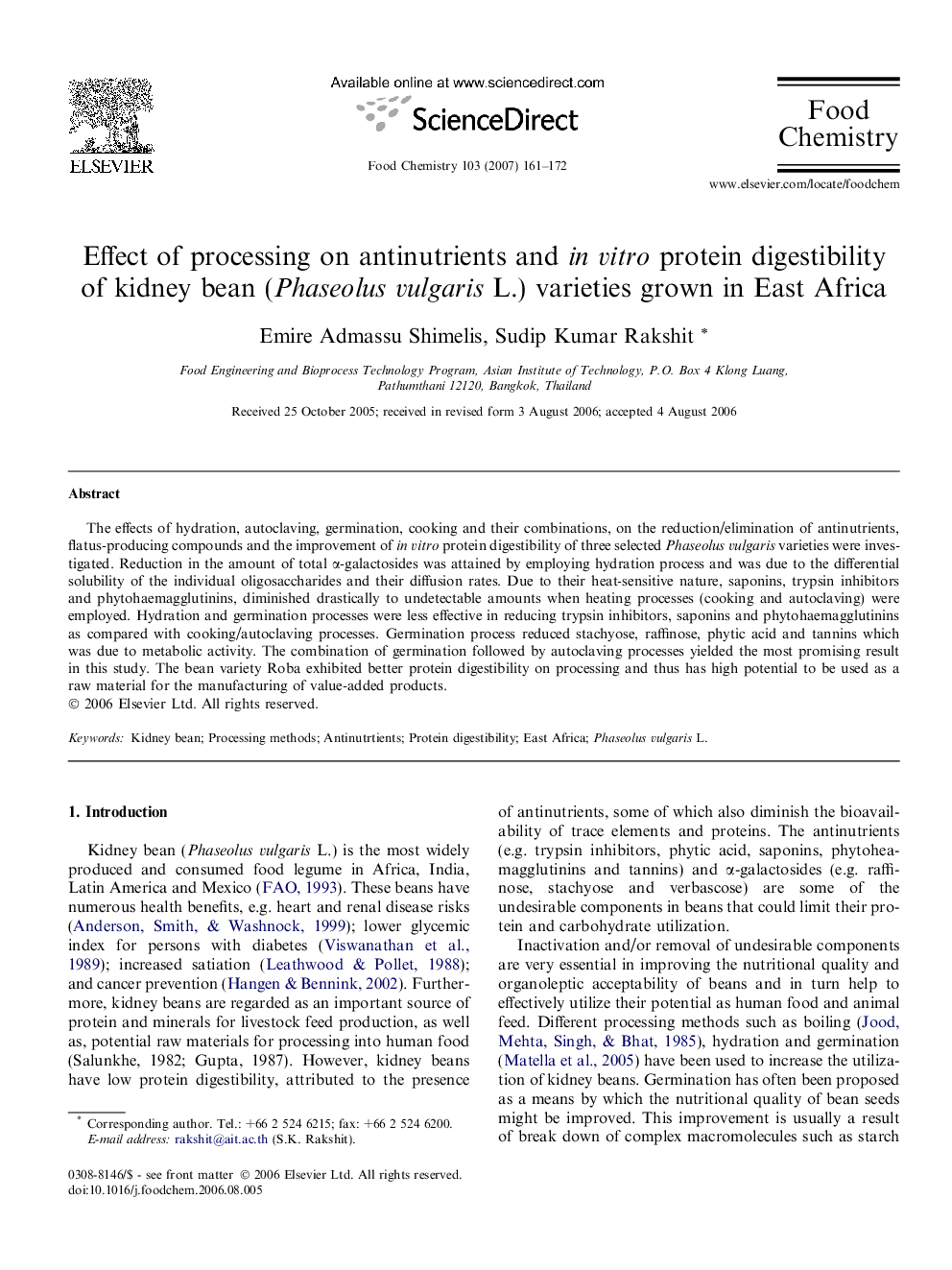| Article ID | Journal | Published Year | Pages | File Type |
|---|---|---|---|---|
| 1187981 | Food Chemistry | 2007 | 12 Pages |
The effects of hydration, autoclaving, germination, cooking and their combinations, on the reduction/elimination of antinutrients, flatus-producing compounds and the improvement of in vitro protein digestibility of three selected Phaseolus vulgaris varieties were investigated. Reduction in the amount of total α-galactosides was attained by employing hydration process and was due to the differential solubility of the individual oligosaccharides and their diffusion rates. Due to their heat-sensitive nature, saponins, trypsin inhibitors and phytohaemagglutinins, diminished drastically to undetectable amounts when heating processes (cooking and autoclaving) were employed. Hydration and germination processes were less effective in reducing trypsin inhibitors, saponins and phytohaemagglutinins as compared with cooking/autoclaving processes. Germination process reduced stachyose, raffinose, phytic acid and tannins which was due to metabolic activity. The combination of germination followed by autoclaving processes yielded the most promising result in this study. The bean variety Roba exhibited better protein digestibility on processing and thus has high potential to be used as a raw material for the manufacturing of value-added products.
